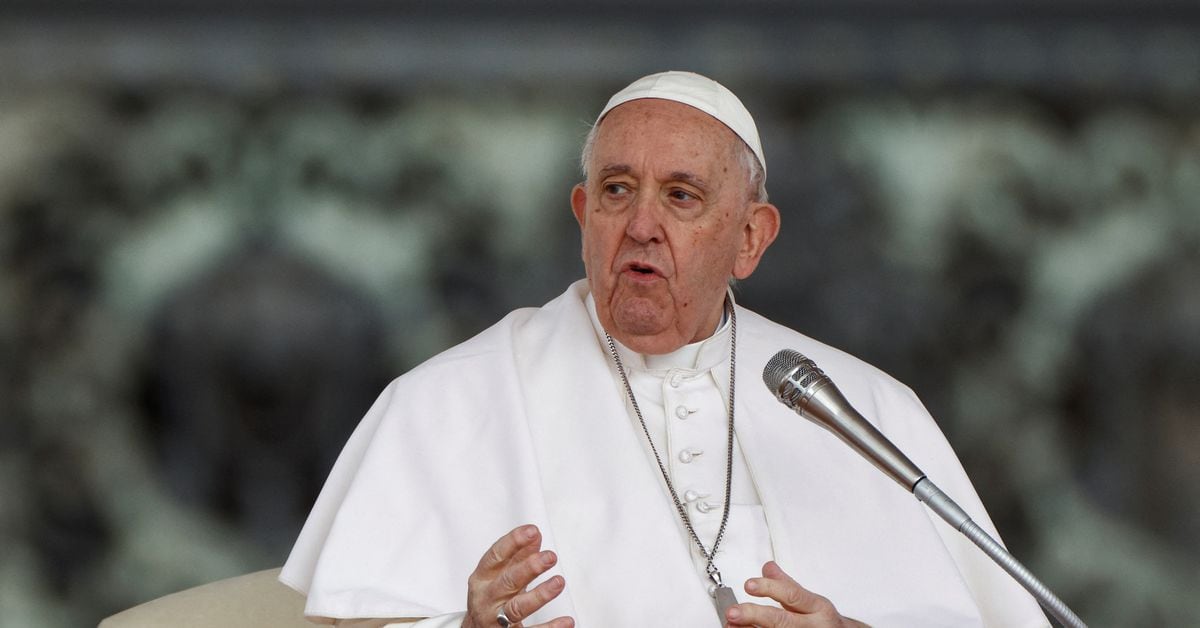Let's take a look at the bible to see if the Eucharist is a mockery of Christ's finished work on the Cross.
“‘I am the living bread which came down from heaven; if any one eats of this bread, he will live forever; and the bread which I shall give for the life of the world is my flesh.’ The Jews then disputed among themselves, saying, ‘How can this man give us his flesh to eat?’” (John 6:51–52).
Jesus again repeated his words, but with even greater emphasis, and introduced the statement about drinking his blood: “Truly, truly, I say to you, unless you eat the flesh of the Son of man and drink his blood, you have no life in you; he who eats my flesh and drinks my blood has eternal life, and I will raise him up at the last day. For my flesh is food indeed, and my blood is drink indeed. He who eats my flesh and drinks my blood abides in me, and I in him” (John 6:53–56).
Notice that Jesus made no attempt to soften what he said, no attempt to correct “misunderstandings,” for there were none. Our Lord’s listeners understood him perfectly well. They no longer thought he was speaking metaphorically as originally thought but literally, that's why in the following verses his disciples could not listen to it anymore and walked away:
In John 6:60 we read: “Many of his disciples, when they heard it, said, ‘This is a hard saying; who can listen to it?’” (It is here, in the rejection of the Eucharist, that Judas fell away; look at John 6:64.) “After this, many of his disciples drew back and no longer went about with him” (John 6:66).
This is the only record we have of any of Christ’s followers forsaking him for purely doctrinal reasons. If they erred in taking a metaphor in a literal sense, why didn’t he call them back and straighten things out? Both the Jews, who were suspicious of him, and his disciples, who had accepted everything up to this point, would have remained with him had he said he was speaking only symbolically.
But he did not correct these protesters. Twelve times he said he was the bread that came down from heaven; four times he said they would have “to eat my flesh and drink my blood.”
The Greek word used for “eats” (trogon) is very blunt and has the sense of “chewing” or “gnawing.” This is not the language of metaphor.
Let's see what St Paul says in the bible:
“The cup of blessing which we bless, is it not a participation in the blood of Christ? The bread which we break, is it not a participation in the body of Christ?” (1 Cor. 10:16).
St Paul goes on to say in the bible:
“Therefore whoever eats the bread and drinks the cup of the Lord unworthily will have to answer for the body and blood of the Lord. . . . For any one who eats and drinks without discerning the body, eats and drinks judgment on himself” (1 Cor. 11:27, 29).
“To answer for the body and blood” of someone meant to be guilty of a crime as serious as homicide. How could eating mere bread and wine “unworthily” be so serious? St Paul’s comment makes sense only if the bread and wine became the real body and blood of Christ.
Now let's look at what the early Christians believed about the Eucharist:
* St Ignatius of Antioch, who had been a disciple of the apostle John and who wrote a letter to the Smyrnaeans about A.D. 110, said, referring to “those who hold heterodox opinions,” that “they abstain from the Eucharist and from prayer, because they do not confess that the Eucharist is the flesh of our Savior Jesus Christ, flesh which suffered for our sins and which the Father, in his goodness, raised up again” (6:2, 7:1).
* Forty years later, St Justin Martyr, wrote, “Not as common bread or common drink do we receive these; but since Jesus Christ our Savior was made incarnate by the word of God and had both flesh and blood for our salvation, so too, as we have been taught, the food which has been made into the Eucharist by the Eucharistic prayer set down by him, and by the change of which our blood and flesh is nourished, . . . is both the flesh and the blood of that incarnated Jesus” (First Apology 66:1–20).
* Origen, in a homily written about A.D. 244, attested to belief in the Real Presence. “You are accustomed to take part in the divine mysteries, so you know how, when you have received the Body of the Lord, you reverently exercise every care lest a particle of it fall and lest anything of the consecrated gift perish” (Homilies on Exodus 13:3).
The early church took John 6 literally, it was Unanimous. There is no record from the early centuries in which the literal interpretation is opposed. For the first 1500 years of Christianity ALL Christians believed the Eucharist to be the Body, Blood, Soul and Divinity of our Lord and Savior Jesus Christ, until the protestant reformation in 1517AD it then began to change.
So I ask myself the question: I have the bible which is clear on the real presence of Christ in communion, I also have access to what the very early Christians believed about the Eucharist in the 1st, 2nd & 3rd centuries. Am I going to Listen to Jesus' words in the bible and reaffirmed by the early Christians OR am I going to believe a guy called Caveman who rejects the Eucharist in the year 2023? It's a no brainer for me TBH.

